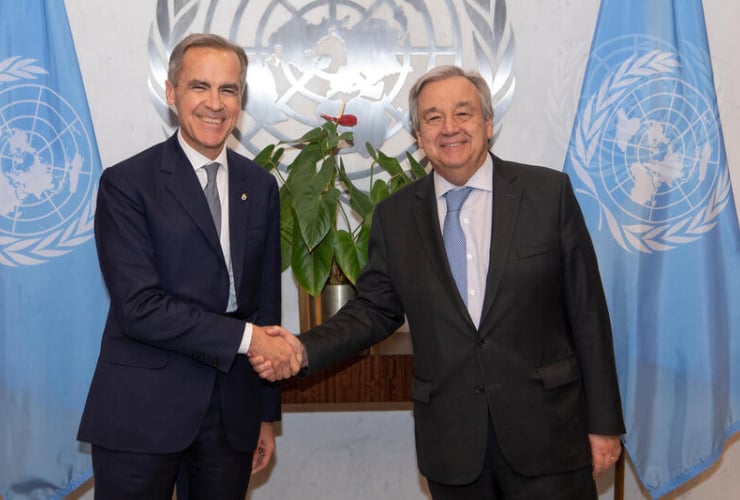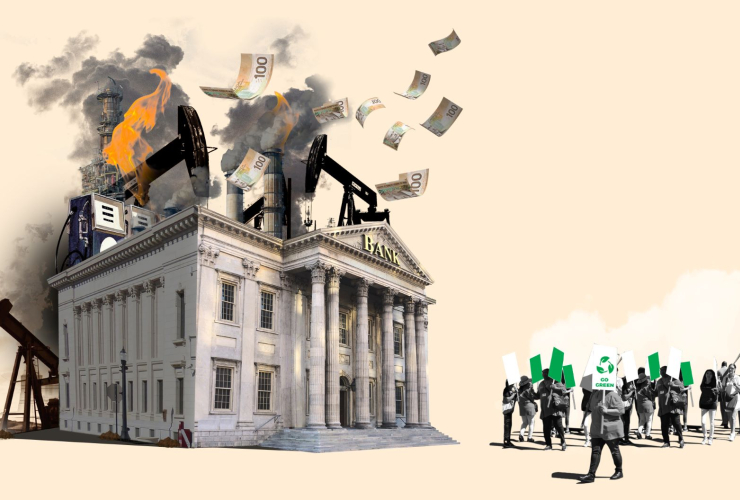United Nations Secretary General António Guterres called yesterday for an international coalition to end coal power, at a time when use of the fossil fuel is on the rise.
Speaking to the World Economic Forum, Guterres urged countries, financial institutions, investment funds and companies with “technological know-how” to form coalitions that could “help key emerging economies accelerate the (energy) transition.”
In December, the International Energy Agency said coal use reached an all-time high in 2021, rebounding after a decline in the previous two years due to many economies recovering from earlier stages of the pandemic hungry for electricity.
“Coal is the single largest source of global carbon emissions, and this year’s historically high level of coal power generation is a worrying sign of how far off track the world is in its efforts to put emissions into decline towards net-zero,” IEA executive director Fatih Birol said at the time.
“Without strong and immediate actions by governments to tackle coal emissions — in a way that is fair, affordable and secure for those affected — we will have little chance, if any at all, of limiting global warming to 1.5 C.”
Guterres said many countries’ heavy dependence on coal is an obstacle “that stands in the way of progress for all.” He warned that even if every country kept its promise to meet Paris Agreement emission reduction targets, global emissions would still push the goal of holding warming to 1.5 C out of reach.
“We need a 45 per cent reduction in global emissions this decade,” he said. “Yet global emissions are set to increase by 14 per cent by 2030 –– defying reason and ignoring the impacts on people, economies and our planet.”
Guterres noted the planet has already warmed 1.2 C, and with it, the economic and social costs have only grown. In 2021, 10,000 people were killed by extreme weather and $120 billion worth of insured losses were recorded around the world, he said. Moreover, at least one billion children are at an “extremely high risk of the impacts of climate change,” he added.
Canada and other wealthy countries have a role to play in helping the world pay for a transition away from coal.
To help convince nations to sign on to the Paris Agreement, rich countries promised to deliver US$100 billion worth of climate financing to developing countries by 2020. That promise was broken and isn’t expected to be met until 2023.
In June, Canada committed to doubling its international climate financing from $2.65 billion to $5.3 billion over five years. Approximately 60 per cent of this funding will be delivered through loans, while the remaining 40 per cent is distributed through grants.
Canada’s fair share of the US$100 billion figure is estimated to be $1.8 billion annually, or about $9 billion over five years.
Grants are best suited for investments in developing countries that “currently have limited financial returns,” Finance Canada spokesperson Benoit Mayrand told Canada’s National Observer. These include projects like nature-based climate solutions and efforts to adapt to life on a warming planet.
Loans, meanwhile, are effective investments for projects “where financial returns may be possible in the long term, but public support is still needed to incentivize private sector investment,” Mayrand added, pointing to things like renewable energy projects.
One example of how Canada spends money is a $275-million loan to the “Energy Transition Program,” a program under the Canada-World Bank Clean Energy and Forests Climate Facility. That program, designed to boost energy efficiency and renewable energy markets in regions with heavy coal use, attempts to slow the growth of coal by developing low-carbon alternative energy sources.
Climate Action Network Canada’s international climate diplomacy manager Eddy Pérez says it’s important to know the quality of Canada’s international climate financing, not just the total amount it plans to dole out. That means greater transparency about how much money is being delivered for projects aimed at reducing emissions versus adapting to the impacts of a warming climate, and who exactly receives the money.
Pérez said one reason this is important is because the $2.65 billion administered in the past five years didn’t have much impact. The funding was funnelled through bureaucratic multilateral development banks, he noted, making it complicated to access for those who need it most.
“Canada's climate finance, for the most part, ended up going to low-middle-income countries instead of going to least developed countries, instead of going to the Pacific islands states … because the projects that Canada wanted to finance were only projects where they wanted to see a return on investments,” he said.
“When you talk to partners in the Global South, they don't feel the impact,” he said.
At last year’s UN climate conference, where finance took centre stage, Pérez said there were two crucial points Canada should register for the coming year. The first is the need for the least developed countries to be able to access climate funding right now. The second is to develop the right forms of partnerships.
Beyond scaling up the amount Canada provides and making sure it can be used by those who need it, Pérez said the federal government could also use the opportunity to pursue bilateral partnerships with countries and regions to know where funding would deliver the most impact, rather than routing all the cash through multilateral development banks.
Pérez said if Canada wants to be seen as a partner, it should make sure the priorities of the Paris Agreement are protected. That means making sure financing for projects that reduce emissions are balanced with projects that help communities adapt, and that there is more transparency around who gives and receives money for projects.
British Columbia’s devastating flooding in November, immediately after the COP26 climate conference in Glasgow, also points to the need for loss and damage financing, he said.
Loss and damage financing is a hotly debated topic in climate diplomacy. At COP26, the G77 and China pushed for a fund that would compensate countries for destruction caused by climate change, given its enormous cost, but the plan was dashed by the United States and the European Union, which don’t want to finance anything that could be perceived as suggesting liability for damages. Discussions on a loss and damage facility are expected to continue in the lead-up to COP27 later this year.
Pérez said loss and damage financing should be additional to funding for adaptation and mitigation projects because existing “funds are so scarce,” adding: “There shouldn’t be competition between what’s already out there and this crucial need that has existed for many years that countries like Canada have ignored.”
And Canada also needs to
And Canada also needs to clean its own doorstep.
Someone (Lord knows I've tried) needs to get it into their thick skulls that minimal reductions of emissions at the point of production Just Don't Cut It. Literally and figuratively.
Coal facts - Natural Resources Canada
https://www.nrcan.gc.ca › our-natural-resources › minerals-mining › minerals-metals-facts › coal-facts › 20071
"Canada's coal production in 2019 was 57 million tonnes ... Canada exported 37 million tonnes of coal and imported 8 million tonnes in 2019. Canada is the world's fourth largest exporter of metallurgical coal, after Australia, the United States and Russia. Alberta and British Columbia produced 83% of Canada's coal."
And that doesn't begin to touch the amounts Canadian institutions finance coal abroad. While several media outlets promoted the idea that Canada had agreed to cut off its foreign investments in coal, that's not what they actually did. They said they'd cut off after what was it? 2020-something, but not *now*, for sure. And it wasn't all foreign investments, only *new* foreign investments after that date. And not *all* new foreign investments after that date, even: only "unabated" coal production. And therein lies the rub.
It's weasel language, and now we've good enough reason to suspect that the language is lubricated with slimey "at source emissions" reductions.
And as far as that goes, even that is worth what it costs to mouth those words. So far, lotsa words, slimey weasel words though they be ... and no action.
Instead we have claptrap BS
Instead we have claptrap BS about the "right time" and the "right pace" for withdrawing financial support.
While Canada's far north sees warming at what is it now? ?4X? the world rate?






Comments